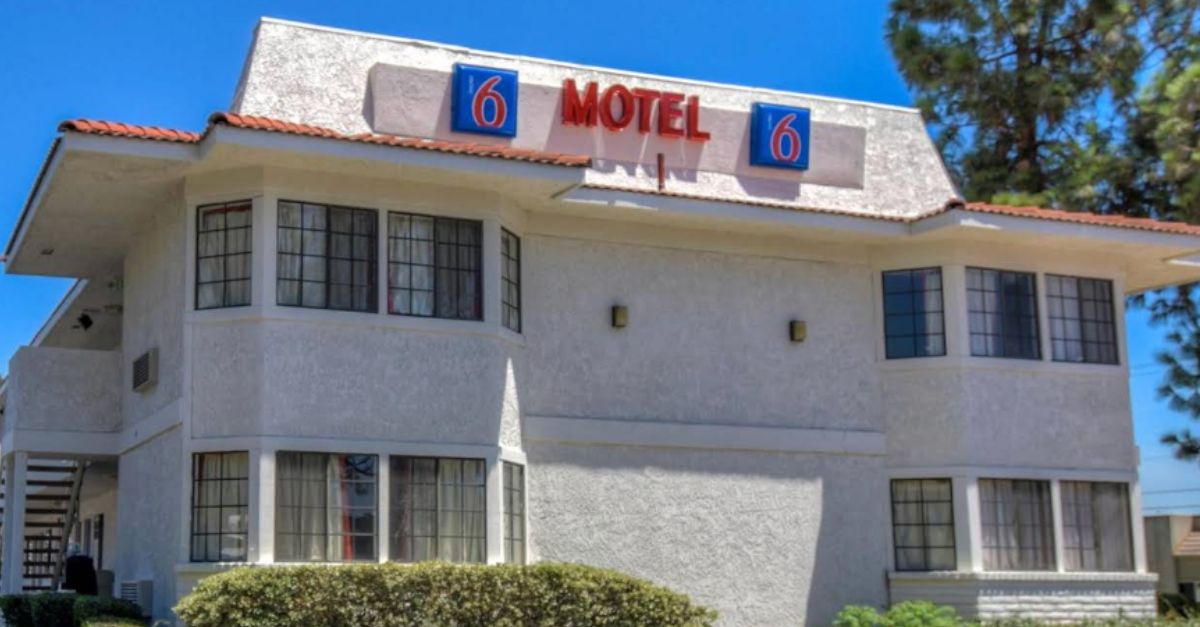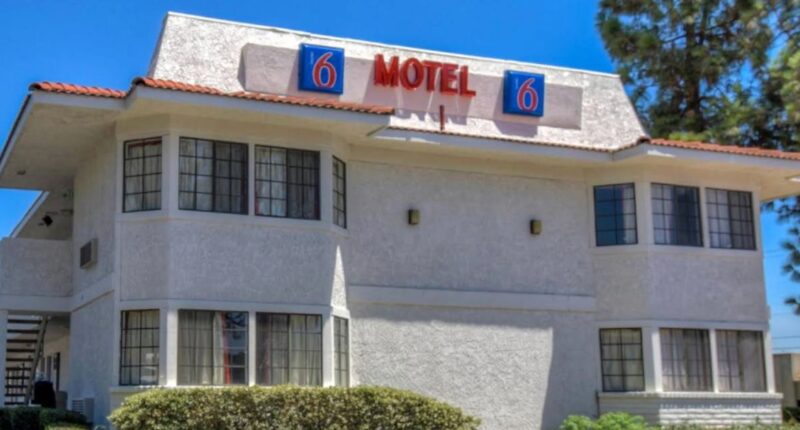
Motel 6, San Dimas, California (image via Google Maps).
A woman has sued Motel 6 and other motel chains Tuesday for allegedly allowing her to be trafficked and raped nearly a thousand times.
According to a report in the Los Angeles Times, a woman filed a complaint claiming that Motel 6 franchisor G6 Hospitality LLC, Wyndham Hotel Group, and Red Roof Inn bear responsibility for her forced labor because the hotel staff were aware of, and in some cases, assisted in her exploitation.
The plaintiff, known as Jane A.B. Doe in the court documents, stated that she was only 13 years old when she ran away from child protective services in Dallas and encountered a trafficker who coerced her, at gunpoint, to engage in sexual acts at three different hotel chains across California and Texas. Jane Doe alleged that she was subjected to repeated instances of sexual assault, with the count amounting to almost a thousand times, in various Motel 6 and Red Roof Inn establishments, all while the staff ignored her plight.
She further claimed that not only did the hotel employees witness her trafficking but they also actively assisted her trafficker in committing the crimes. Shockingly, there were instances where staff allegedly watched as Jane Doe was assaulted or even took part in the assaults themselves.
Doe’s lawsuit also alleges that hotel staff would ignore “obvious signs of abuse,” such as visible bruising, malnourishment, being in a drugged state, and clothing inappropriate for the weather or general public.
Doe alleged that the hotels specifically instructed cleaning staff not to service rooms in which she was confined, that hotel staff would provide rooms conveniently situated for the pimp, and would even instruct A.B. and her trafficker to use certain entrances and exits to avoid being seen.
The hotels, “financially benefited from the sex trafficking of Jane AB Doe and other victims like her and developed and maintained business models that attract and foster the commercial sex market for traffickers,” claimed the lawsuit, which asks for unspecified damages.
Another case, this one listing “Jane AAG Doe” as the plaintiff, was filed in federal court in Texas on Jan. 30, and largely mirrors the allegations in the California case. The federal lawsuit names California Motel 6 locations in Los Angeles and Gardena, Texas locations in Dallas and Austin, a Studio 6 in Dallas, a Red Roof Inn in Houston, and an unspecified Days Inn by Wyndham and Super 8 by Wyndham location as defendants.
The complaint accuses the motel chains of violating the federal Trafficking Victims Protection Reauthorization Act (TVPRA), which affords victims of sex trafficking a civil remedy against perpetrators. AAG Doe alleged that the defendant motel chains profited from facilitating sex trafficking, “by providing a venue where traffickers could exploit victims… with minimal risk of detection or interruption.”
She also said that the hotels not only provided ongoing support for sex traffickers, but ignored “obvious and apparent signs” of her victimization.
Specifically, AAG Doe aid she was “trafficked through force and coercion” to engage in “numerous commercial sex acts” from January 2015 to December 2015. AAG Doe asserted that the link between hotels and sex trafficking is so pervasive that law enforcement agencies such as the Department of Homeland Security and the National Center for Missing and Exploited Children specifically advise hotels to recognize the signs of trafficking.
“The relationship between a pimp and a prostitute is inherently coercive, and the United States Department of Justice and other agencies and organizations have recognized that most individuals involved in prostitution are subject to force, fraud, or coercion,” said the complaint.
AAG Doe argued that the hotels were aware of, or should have been aware of, the “red flags” of sex trafficking and should have had policies and procedures to educate hotel staffers accordingly.
“The most effective weapon against sexual exploitation and human trafficking is education and training,” noted the plaintiff.
In her 31-page complaint, AAG Doe pointed to over 40 newspaper articles and online reviews indicating that various Motel 6 locations were known to be involved with sex trafficking. This plethora of evidence amounted to constructive knowledge of the underlying problem, argued Doe.
She further argued that the defendant motels ignored the obvious signs of her trafficking, such as use of cash or prepaid cards, refusal to allow housekeeping to enter the room, heavy foot traffic involving men who were not hotel guests at odd hours,
“[M]ultiple employees … including management-level employees, observed, or were made aware of these obvious signs of trafficking,” claimed Doe. “As such, G6 Defendants knew or was willfully blind to the fact that Jane Doe (A.A.G.) was being trafficked at the subject Motel 6 property.”
The lawsuit requests unspecified damages for violation of the TVPRA and is proceeding before U.S. District Judge Michael J. Truncale, a Donald Trump appointee.
Representatives for the parties did not immediately respond to request for comment.







